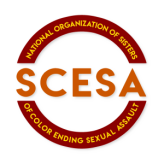Andrea Garwood has served as the Executive Director for Living Well Counseling and Consulting Agency in Orlando, Florida for the past 14 years. Ms. Garwood is a Licensed Mental Health Counselor with more than 25 years of experience in providing training and consultation services to the community at large. Ms. Garwood graduated from the Florida State University with a B.A. in Psychology, and later received a M.A. in Mental Health Counseling from the University of Central Florida. She is a member of the Orange County Children’s Cabinet and serves on the Clinical Committee, a subcommittee of the Cabinet. She also serves as a team member on the Trauma-Informed Task Force for the Central Florida Community. Ms. Garwood also served as an adjunct instructor in General Psychology and Career Counseling at Seminole State College and has served as a visiting instructor at the University of Central Florida and Strayer University.
She has an extensive work background in domestic violence, sexual abuse/assault, child abuse and neglect, and disaster behavioral and mental health response. Ms. Garwood has managed/supervised various child and family intervention programs and has served as a provider/consultant, trainer and community collaborator. She served as a Program Director for The Healing Tree Program at the Howard Phillips Center for Children & Families where adults and children experiencing domestic violence, physical abuse, sexual assault and neglect receive advocacy, information and mental health counseling. Ms. Garwood served on the Osceola County CAC Advisory Board, Orange County CAC Multi-Disciplinary Team, and the Central Florida Child Exploitation Task Force.
IN HER OWN WORDS
We asked our Sheroes some questions, here’s what Andrea had to say:
“ I learned that I have to be open to learning from the survivors I work with and when I am open, I can be a greater help”
Why do you think addressing sexual assault is important?
Addressing sexual assault is important because of its complexity and multifaceted scope. Sexual assault statistics are astronomical for women and teens. Sexual assault also has an all-encompassing impact on the individual survivor as well as the family members attached to that survivor. Addressing sexual assault is addressing a community health issue.
What do you enjoy most about your work?
I enjoy seeing survivors heal, change and grow, becoming more of who they truly were meant to be – uninhibited by the sexual trauma.
Why is it important for Communities of Color to address sexual assault in their community?
Sexual assault is important to address in all communities. It is especially important in Communities of Color because of historical trauma from the lingering effects of slavery on our psyche and our communities. We are marginalized as a community and daily we must fight against the challenges that come with living in a society that sees People of Color as less than. [Survivors of Color] have to fight historical racism or injustices along with the sexual trauma; consequently, addressing compounded trauma issues.
How do you think your work makes a difference in ending sexual assault?
As an advocate and counselor, I hope my work helps women and teens grow and heal from the impact of sexual trauma. I hope that my role as a guide and coach helps those I work with move from a place or helplessness and hopelessness to becoming women that are healed and empowered and able to move from being stunted by the impact of sexual trauma and being the strong woman/teen they were meant to be.
What are some of the lessons you have learned about addressing sexual assault?
I learned that if I don’t give up on a survivor, they are more likely to get to a place of healing and health that will awe them. I learned that I cannot do more of the “work” than the survivor or I will negatively affect the survivor. I learned that I have to be open to learning from the survivors I work with and when I am open, I can be a greater help.
How do you take care of yourself in doing this work?
I am mindful of maintaining a balance in spirit, mind, and body. I know that I take on a lot during the work day and I also need to release and replenish daily. I have a daily routine of self-care: unwind with music or silence on the way home from work; when I get home, I take the first 30 minutes to unwind and let go of the day. I also journal if my daily routine doesn’t bring release. I also have a weekly and bi-weekly routine –exercising, self-care manicure and pedicures, massages, weekend trips away, engaging in my spiritual practices (praying, going to church, meditation), having a mutual psychologist friend to process difficult survivor issues with, and also engaging great friends to spend time with and have fun.
